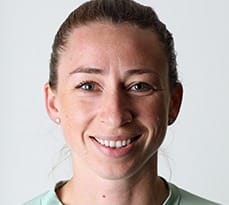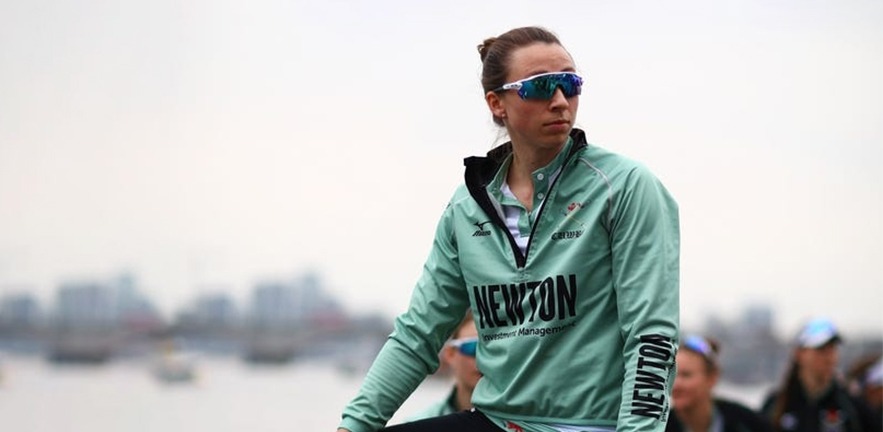Olivia Coffey, a Cambridge MBA alumna and a member of the US Olympics rowing team, outlines five tips regarding competition and career.

Olivia Coffey (MBA 2017), an alumna of the Cambridge MBA programme at Cambridge Judge Business School , has been chosen for the US rowing team at this summer’s Olympic Games in Tokyo.
A native of upstate New York who now works for a private equity firm in New York City, Olivia was on the winning Cambridge University women’s team in The Boat Race against Oxford University in 2018 and has won several international gold medals including in the women’s eight at the 2018 World Rowing Championships.
As the summer Olympic Games approach, we asked Olivia to outline five tips regarding competition and career:
- Prioritising mental and physical wellbeing is paramount to success in athletics and your chosen career. Even though my schedule at Cambridge was quite gruelling, I always made sure to get as much rest as possible, eat well, enjoy friends, and give myself time to step back from the work and relax. It’s easy in intense situations to get wrapped up in the effort and lose sight of what’s important, but if you prioritise balance and a holistic approach to growth, you’re capable of sustaining a high level of performance for extended periods of time.
- In rowing, goals are clear and defined, but professional development is much more fluid. Going to the Olympics is, in many ways, very straightforward: if you hit a certain time on the rowing machine or win a race, you get to go. Training check points are clear and every day at practice I knew what my goals were – and even though rowing is tough, time spent training yields improved scores. The pathway isn’t quite as linear with a profession: I remember struggling when I first started working professionally because I didn’t know how to define success in my role. What made a good day in the office? Am I meeting expectations? It took time to realise things aren’t always so black and white, and that I should strive for continual improvement rather than results along the way. If you feel like your effort consistently exceeds the output, it’s an indication you might want to re-evaluate your professional trajectory.
- Being a team player means knowing how to work well with everyone. It’s not enough to only work well with a team of people with whom you get along. You need to be versatile and capable of adapting to the dynamics of any group. In rowing, line-ups change constantly and athletes who mesh with well with others perform better than those who can’t.
- Big payoffs don’t happen overnight. I’ve spent the last 10 years training to make an Olympic team, which means I’ve worked out six days a week, 52 weeks a year, for 10 years straight. Sometimes the outlook seemed quite grim, but I kept chugging along because I believed becoming an Olympian was possible. So the next time you are struggling through a project at work or things aren’t moving as quickly as you would like, just remember that sometimes good things take time. Keep chipping away until you reach your goal.
- I actually felt that I was capable of making the 2020 Olympic team during my year at Cambridge. Even though I was at school and prioritising my studies, rowing was going extremely well and my scores on the ergometer were competitive at an elite level. I was invited to train with the US National Team while completing my summer project for school. I handed in my final project in September and the next day got on a plane for the World Championships in Bulgaria, where my team won gold. After such a successful year, I knew I had to pursue the Tokyo Games.


